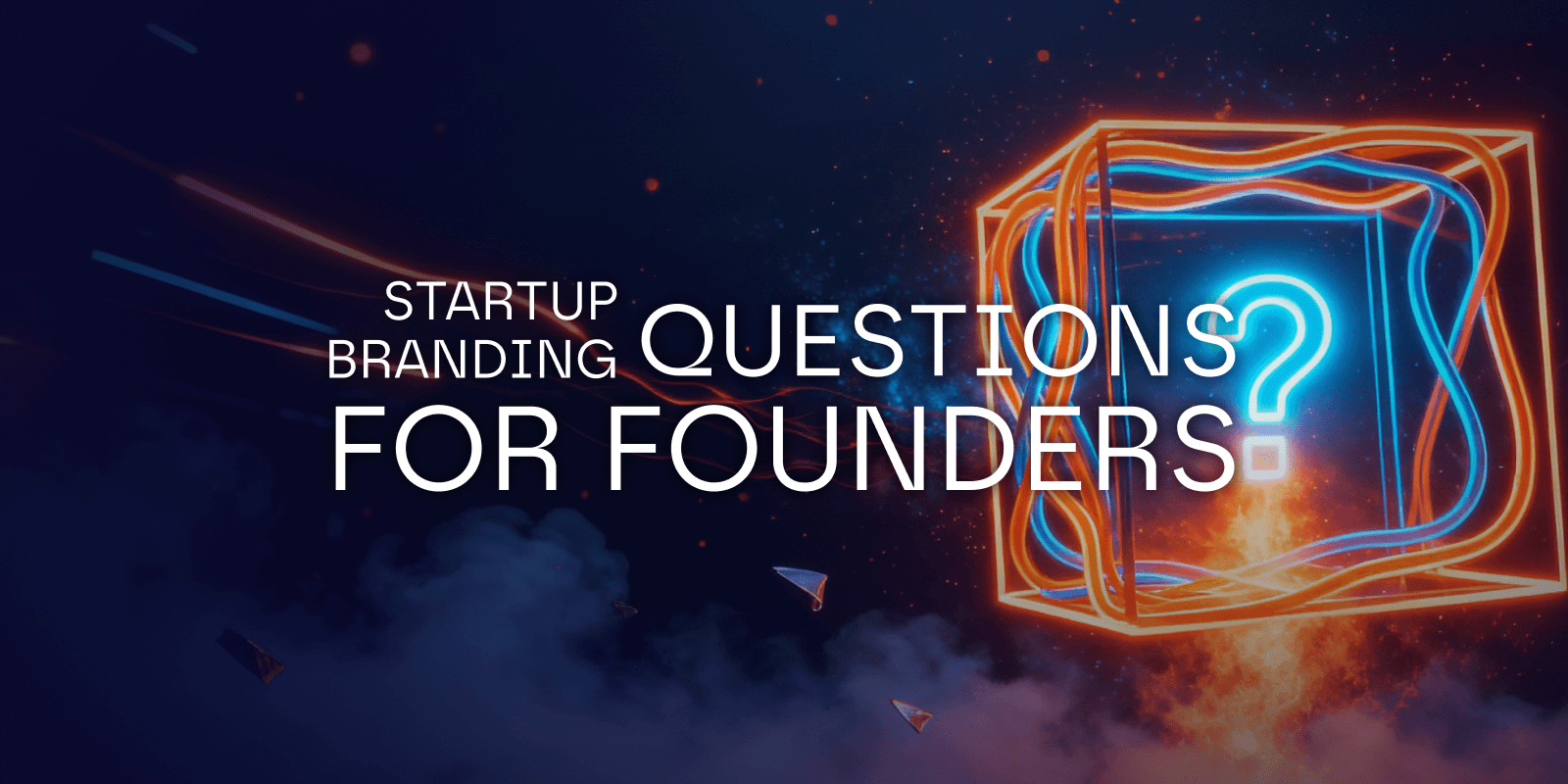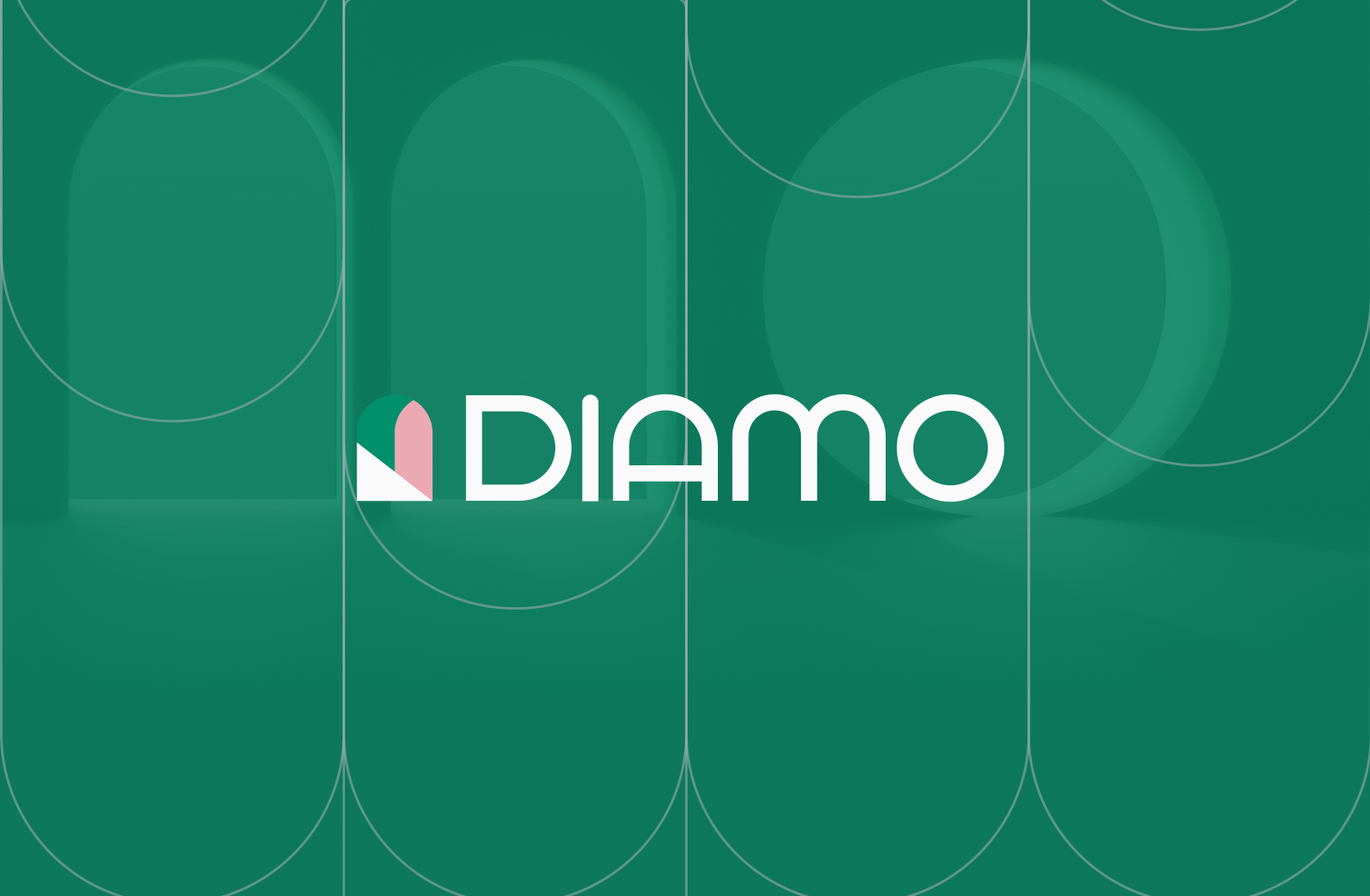When you’re in the process of choosing a startup branding agency, questions inevitably arise. Not only about budget, timeline, and goals, but also about your own business and what to expect from the agency.
Below, you’ll find answers to the most common questions startup founders ask when considering branding. These insights will help you make informed decisions and ensure an efficient, collaborative process.
The 10 most common FAQs in startup branding
Here are the answers to the most frequently asked questions about branding for startups, especially tech-driven ones.
1. What deliverables come standard from a startup branding agency?
A startup branding agency delivers the essential assets that form the foundation of a brand, equipping founders with the strategic foundation and the visual (and sometimes verbal) identity system needed to present a professional, coherent brand. Standard deliverables include:
- Brand strategy: positioning, mission, values, and personality
- Visual identity: logo suite, color palette, typography, iconography, backgrounds, brand shapes, and other graphic elements
- Brand book or style guide: guidelines for consistent brand use
- Messaging and tone of voice: framework upon request
- Core applications: such as pitch decks, social templates, or web design previews
- Company and/or product videos: specialized agencies or branding agencies upon request
- Web design & development: upon request
2. How long does it usually take to deliver a complete startup brand identity?
The time required to develop a full brand identity can vary widely based on the agency’s process and project scope. Generally, branding projects can take anywhere from a few weeks to a few months from kickoff to completion.
The most common time range is between 4 and 12 weeks, depending on the project scope. A full process includes discovery and strategy, design iterations, feedback rounds, production of collateral, and website design and development.
3. What kind of businesses do startup branding agencies usually work with?
Startup branding agencies work with seed, early-stage, and growth-stage companies that need to clarify their positioning and build credibility. Most clients are innovation-driven businesses, including tech startups ranging from SaaS platforms, fintech, cleantech, health tech to deeptech companies.
Some agencies focus exclusively on tech branding because the sector demands a blend of strategic clarity and design precision.
Agencies like The Branx, RNO1, and Phable are explicitly specialized in tech startups, offering processes tuned to new ventures. Others like Clay and Brightscout focus on tech but serve both startups and larger tech firms. Creative powerhouses like Koto, Mucho, and Pentagram serve a mix of industries (not just tech) and often work with more mature companies or heavily funded startups. Early-stage startups in Europe or the US might lean toward the tech-focused boutique agencies for a mix of affordability and relevant expertise, while growth-stage startups with bigger budgets might also consider the bigger-name agencies for their broader experience with such company sizes.
Find out more about the 10 best tech branding agencies of 2025 startup founders should consider.
4. What is the average cost of hiring a startup branding agency?
The cost of hiring a startup branding agency varies based on the project scope, the deliverables, and they agency's profile. Typical cost ranges:
- Mid-tier specialist agencies (e.g. The Branx, Phable, RNO1): These often provide high quality at more accessible rates than famous big firms. For instance, The Branx’s projects typically range from about $15,000 on the low end to $40,000 for a comprehensive engagement including web design and development. Phable and RNO1 offer flexible or phased packages, with starting points likely in the tens of thousands as well. RNO1’s subscription model might let a startup spend a few thousand per month over time instead of one large upfront fee.
- Top-tier branding firms (e.g. Clay, Koto, Pentagram, Further): These command higher budgets. Engaging a renowned agency like Clay or Pentagram typically starts around $75,000+ and can run into six figures for a full brand identity programl. Such costs reflect the extensive research, senior creative teams, and end-to-end execution these firms provide. It’s not uncommon for comprehensive branding (strategy through website) with a top global agency to exceed $150k–$250k for a startup client. Koto and Mucho, given their track record with big brands, likely quote in the higher five-figures to six-figure ranges as well (even if they don’t publicize prices).
As of 2025, startups can expect to invest between $15,000 and $50,000 for a solid identity package.
5. Can a startup branding agency help with messaging and tone?
Most agencies offer messaging and tone of voice development as part of their strategic services, as this is valuable for creating a cohesive brand experience. Within a verbal identity framework, it is defined how the company speaks, writes, and connects with its audience. This often includes developing:
- Key messaging pillars for web and pitch materials
- Tone of voice guidelines to ensure consistency
- Taglines, value propositions, and brand stories that reinforce positioning
6. Can a startup branding agency create a brand style guide for internal use?
Yes. A brand book (or style guide) is a core deliverable of any professional branding process, especially for startups with small teams that need to apply the brand across various assets.
A brand book typically includes:
- Logo usage and clear space rules
- Color palette and typography
- Imagery and illustration styles
- Application guidelines for web, print, and social media
The guide, like the one we created for the Travel tech startup Diamo, serves as an internal reference, enabling marketing and design teams to apply the brand consistently and independently.
7. What kind of client input is needed when working with a startup branding agency?
Your input is essential. Agencies rely on founder insights to shape the brand strategy and creative direction. The process often starts with a discovery workshop covering:
- Business model and goals
- Market positioning and target audience
- Vision, mission, and product roadmap
Feedback rounds throughout the process help maintain alignment between business strategy and creative execution. At The Branx, we constantly revisit your business insights to tie your visual identity to your foundation.
Check out these 10 things to know about your startup before branding it. This guide gets everyone on the same page.
Ideally, you should have answers to these questions before you start the branding exercise. Addressing the following questions upfront will help make faster decisions, reduce creative friction, and move through the branding process more efficiently.
8. What are the long-term business benefits of branding?
Strong branding fuels both immediate traction and sustainable growth.
Clarity: The branding process helps founders define mission, values, and positioning, improving long-term decision-making and marketing alignment.
Trust: A cohesive brand makes your startup appear more credible and established, building emotional connection and loyalty.
Lower acquisition costs: A recognizable brand reduces marketing friction. Since 94% of first impressions are design-related*, good branding ensures those impressions are positive.
Investor and talent appeal: A polished, well-defined brand attracts investors, talent, and partners by signaling professionalism and vision.
Scalability: A consistent brand system adapts easily across new products, regions, and audiences, supporting long-term expansion.
9. What’s the best time in a startup’s journey to invest in branding?
Timing depends on your stage and goals. Branding too early can lead to misalignment; too late, and you miss key growth opportunities.
For first-time branding, the ideal moment is after product validation but before scaling. At this stage, you’ve proven the concept and need a clear identity to attract customers, investors, and team members.
If you’re rebranding, it’s usually triggered by a shift in value proposition, new product features, or an expansion into new markets. The goal is to attract a new audience without alienating existing users.
Investing early in a strong brand will make marketing, sales, and hiring more effective. And it’s much easier to establish clarity early than to fix inconsistencies later.
10. What is brand fit?
“Brand fit” refers to how well your branding aligns with your company’s essence and your target audience’s expectations. It’s about ensuring the brand identity fits the product, culture, and market. It’s not just a logo or tone of voice; it’s how your strategy, identity, and experience connect to create recognition and trust.
A strong brand fit means your positioning, messaging, and visual language all speak directly to your audience’s priorities and emotions.
If product–market fit proves people want your solution, brand fit ensures they prefer you over others. It turns functionality into connection. This alignment builds loyalty, reduces acquisition costs, and strengthens your competitive edge. In short, brand fit transforms a working product into a meaningful brand that drives lasting growth.
Explore how brand fit can help your startup grow.
Extra: Which questions should you ask a startup branding agency?
When evaluating potential branding partners, consider asking:
- How long have you been working with startups?
- What types of startups do you usually work with?
- Who will actually work on my project (designers, strategists, freelancers)?
- How big is your team, and what are their areas of expertise?
- How do you ensure quality and consistency across projects?
- How do we communicate during the project (calls, Slack, Notion, or email)?
- How often will we receive updates or news?
- Can you help us evolve the brand when we expand into new markets?
- Can you help us prepare investor decks or pitch visuals aligned with the new brand?
In this article, you’ll find a detailed guide on how to find the right startup branding agency.
For startup founders debating when and how to invest in branding, explore our cheat sheet:
10 things to know before branding your startup.
A practical guide to align your business, product, and brand strategy before you start.
*Source: parallelhq.com


.png)
